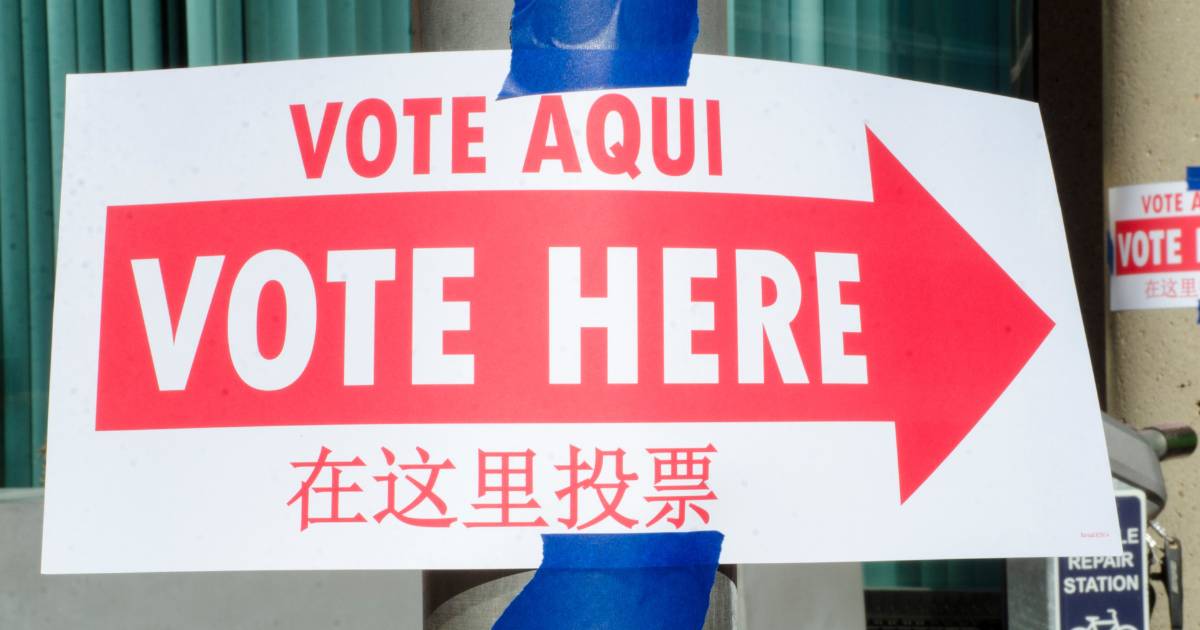National presidential conventions are around the corner, and political and climate reporters are already digging into the electoral implications for U.S. climate and energy policy. The stakes for the safety, accessibility, and security of water — from replacing all lead pipes in the next decade, and closing the clean water access gap for Tribal communities, to the future of the Colorado River — hang in the balance.
Will vote for water
Water matters to U.S. voters. That’s why we saw Senators Bennet and Sinema touting the drought funding they fought for in the Inflation Reduction Act and Senators Duckworth and Durbin celebrating lead pipe progress in Chicago. Voters across both parties support continued federal investment in the nation’s water infrastructure. Last year’s annual Water Hub poll found 68% of voters say drinking water and sewage infrastructure should be a top priority for investment by the U.S. government, above renewable energy (59%), the electricity grid (56%), or even roads (49%), or new housing (42%). The Biden administration is leaning into big investments in water infrastructure through the Bipartisan Infrastructure Law (BIL) and Inflation Reduction Act (IRA), with Vice President Harris and EPA Administrator Michael Regan leading an Investing in America tour in swing states like Pennsylvania following the State of the Union and EPA launching a story map of water investments across the country. Protecting wetlands in the face of the recent Sackett vs. EPA supreme court decision and directing $1billion to Tribal clean water projects were a pillar of White House Earth Week activities this year.
Will water shape election outcomes?
National surveys tend to show that while voters care about the environment, they worry more about economic and social issues in the voting booth. However, 85% of Western voters responding to the latest annual Conservation in the West poll say clean air, water, and public lands are important issues when deciding whether or not to support a candidate. That’s a big deal, especially given how Western swing states like Nevada and Arizona have Senate elections and will likely play a deciding factor in the presidential race.
Funding in the balance
Continued disparities in clean water access for Tribal communities in the U.S. is a stain. The same White House Earth Week announcement of $1 billion in water infrastructure funding through the BIL also included an MOU between the Indian Health Service and Bureau of Reclamation, signifying a commitment to Tribal water access and a new “whole of government” approach which may not carry over to a different administration. Additionally, House Republicans have already voted to dramatically reduce the EPA’s budget, cutting $1.8 billion in funding for state clean water and drinking water State Revolving Funds. We’ve also seen proposals rolling back climate and water-smart agricultural dollars from the IRA into the next Farm Bill. It remains to be seen: will the funding for water infrastructure and conservation pop in local and national elections?
What’s on tap for the Colorado River
Management of the Colorado River and local water security are likely to be top of mind in Western states dealing with an uncertain future. While U.S. Senate elections are happening in New Mexico and California, all eyes are likely to be on Arizona and Nevada for swing Senate and Presidential results. The Bureau of Reclamation and seven Basin states are working right now to negotiate and finalize a long-term management plan to share the River after the current agreement expires next year. Reclamation is considering two alternative plans proposed by Upper and Lower Basin states, as well as a Cooperative Conservation Alternative that also prioritizes long-term environmental health. We’ll be watching as the current administration works to finalize these plans ahead of the election, and to see how quickly drought-relief funding from the Inflation Reduction Act flows to help build climate resilience in the West.
To stay up with the latest in water justice communications, skill-building, and new offerings, follow us on LinkedIn, Instagram, Twitter/X, and Threads and sign up for our newsletter!
Featured photo credit: U.S. State Department Creative Commons
